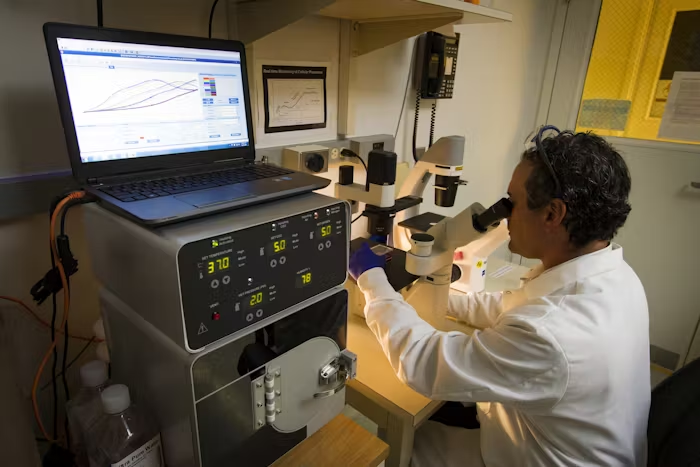Therapy has long been viewed as a way to address mental health challenges, cope with trauma, or navigate life’s difficulties. However, beyond its ability to heal, therapy can also be a transformative tool for self-discovery. It offers a safe, nonjudgmental space to explore your identity, uncover hidden patterns, and connect with your authentic self. Whether you’re seeking clarity in life or striving for personal growth, therapy can guide you on a journey to self-awareness and empowerment.
In this article, we’ll dive into the pivotal role therapy plays in self-discovery, the benefits it offers, and how to begin your journey with confidence.
What Is Self-Discovery?
Self-discovery is the process of understanding who you are at your core. It involves exploring your values, passions, strengths, weaknesses, and purpose. True self-discovery goes beyond surface-level knowledge, delving deep into your emotional, psychological, and spiritual realms.
While self-discovery can occur naturally through life experiences, therapy accelerates and deepens the process by offering expert guidance and structured tools to navigate complex emotions and thoughts.

How Therapy Facilitates Self-Discovery
1. A Safe Space for Exploration
Therapy provides a judgment-free zone where you can speak openly about your thoughts, feelings, and experiences. Unlike conversations with friends or family, therapy focuses entirely on you without external biases or interruptions. This safe environment allows you to express your authentic self, free from societal or relational expectations.
2. Identifying Core Beliefs and Patterns
We all carry subconscious beliefs formed during childhood or significant life events. These beliefs often shape our decisions, relationships, and self-perception. Therapy helps you uncover these underlying patterns and question their validity. For example:
- Are you striving for perfection because you fear inadequacy?
- Do you avoid vulnerability due to past rejection?
Recognizing these patterns is the first step toward rewriting your narrative.
3. Connecting with Emotions
Many people suppress or avoid their emotions, either out of fear or habit. Therapy encourages you to embrace and process your feelings, fostering emotional intelligence. Understanding your emotional responses helps you better navigate relationships and life’s challenges.
4. Clarifying Goals and Values
Through therapeutic discussions, you gain clarity on what truly matters to you. Are your goals aligned with your authentic self, or are they influenced by external pressures? Therapy helps you distinguish between societal expectations and your personal aspirations.
5. Uncovering Strengths and Passions
Self-discovery isn’t just about addressing weaknesses; it’s also about recognizing your strengths and talents. Therapists often use exercises, such as strengths-based assessments, to help you identify what makes you unique and how to leverage it for personal fulfillment.
The Benefits of Therapy in Self-Discovery
1. Increased Self-Awareness
Therapy shines a light on aspects of yourself that you may not have noticed before. This heightened self-awareness leads to better decision-making and a deeper understanding of how you relate to the world.
2. Improved Relationships
As you become more aware of your emotional triggers and communication style, you can foster healthier relationships. Therapy teaches you how to set boundaries, express your needs, and empathize with others.
3. Enhanced Emotional Resilience
By working through unresolved emotions and learning coping strategies, therapy strengthens your ability to handle stress and setbacks. Resilience is key to personal growth and maintaining a positive outlook.
4. Alignment with Your True Self
Therapy helps you peel away layers of societal conditioning, revealing your authentic self. Living in alignment with your true values leads to greater satisfaction and purpose in life.
5. Empowerment to Make Changes
Whether it’s pursuing a career change, ending a toxic relationship, or adopting healthier habits, therapy equips you with the confidence and tools to take meaningful action.
Types of Therapy for Self-Discovery
There’s no one-size-fits-all approach to therapy. Depending on your goals and preferences, you can choose from various modalities, including:
1. Talk Therapy (Psychodynamic Therapy)
This traditional form of therapy focuses on exploring your past to understand how it influences your present behaviors and emotions.
2. Cognitive Behavioral Therapy (CBT)
CBT helps you identify and change negative thought patterns, fostering a more positive mindset and healthier habits.
3. Humanistic Therapy
Humanistic approaches, such as person-centered therapy, emphasize self-growth and reaching your full potential. They encourage self-expression and self-acceptance.
4. Mindfulness-Based Therapy
Mindfulness-based techniques, such as acceptance and commitment therapy (ACT), help you stay present and connect with your inner self.
5. Expressive Therapies
Creative outlets like art therapy, music therapy, or journaling can facilitate self-expression and reveal insights into your subconscious.
How to Begin Your Journey with Therapy
1. Identify Your Goals
Before starting therapy, take time to reflect on what you hope to achieve. Are you looking to understand yourself better, improve your relationships, or work through past traumas? Clear goals will help you and your therapist focus your sessions effectively.
2. Find the Right Therapist
Choosing a therapist who aligns with your needs and values is crucial. Look for someone with experience in self-discovery or personal growth. Don’t hesitate to schedule initial consultations to find a good fit.
3. Commit to the Process
Self-discovery through therapy takes time and effort. Be patient with yourself and stay committed, even when the process feels challenging.
4. Be Open and Honest
Therapy works best when you’re willing to be vulnerable. Share your thoughts and feelings honestly, even if they’re uncomfortable. Your therapist is there to support, not judge, you.
The Journey Is Ongoing
Self-discovery is not a destination but a lifelong journey. Therapy provides a solid foundation for understanding yourself, but personal growth continues as you navigate new experiences and challenges. The insights you gain from therapy will empower you to live a more intentional, fulfilling life.
The role of therapy in self-discovery is transformative. By offering a safe space, expert guidance, and powerful tools for introspection, therapy helps you uncover your true self and align with your values. Whether you’re seeking clarity, growth, or healing, therapy is a valuable investment in your well-being and future.
Remember, self-discovery is a journey of self-compassion and exploration. Embrace the process, celebrate your progress, and watch as your life transforms in ways you never imagined.














